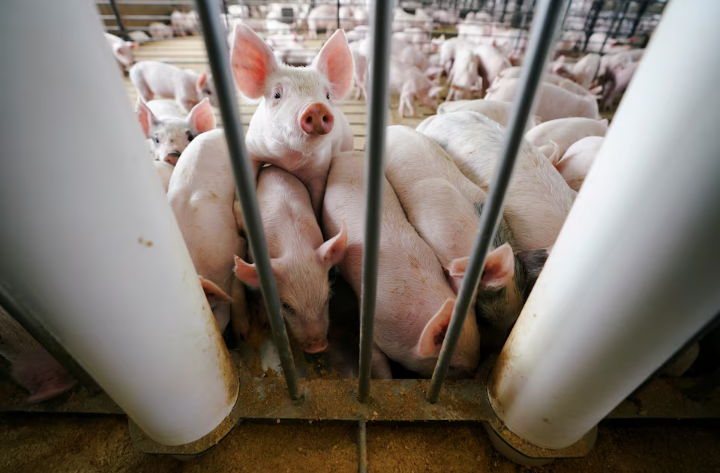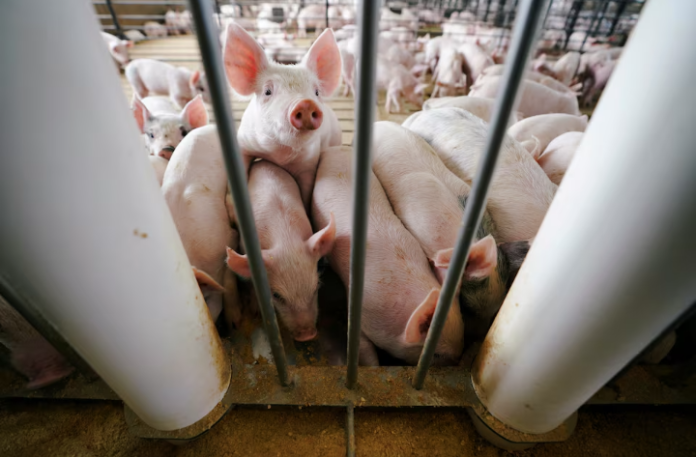When Dr. Mike Lemmon prepared his elite pigs for export to Hangzhou, China, he expected a $2.4 million payday. Instead, his carefully bred hogs—worth up to $5,000 each—ended up at a local Indiana slaughterhouse for less than $200 apiece. The deal collapsed just days after China slapped retaliatory tariffs on U.S. agricultural goods in response to President Donald Trump’s escalating trade war.
For American farmers, the fallout has been nothing short of devastating.
U.S. breeding pigs and livestock genetics—especially cattle semen—once had a profitable niche in China, where they were highly valued for improving animal health and food production. But those exports have nearly vanished, drying up a market that took years to build.
Dr. Lemmon, a veterinarian and pig farmer with over 30 years of international sales experience, said the collapse of the Chinese deal was more than just a financial hit—it was the loss of a long-term relationship. “It’s heartbreaking,” he said. “These pigs were bred for excellence—large litters, healthy genes, and meat with rich marbling.”
And he’s not alone. Livestock exporters across the U.S. are reporting canceled contracts, millions in lost revenue, and strained relationships with Chinese buyers. “We’ve got brand damage now,” said Tony Clayton, head of Clayton Agri-Marketing in Missouri. “Every week, clients ask, ‘What’s going on with the U.S.?’ It’s going to take a long time to repair this.”
Even though Washington and Beijing have recently agreed to pause some tariffs, the damage may already be done. Many believe that China will permanently shift to other suppliers—like Denmark or Canada—for livestock genetics.
The White House says it’s actively seeking alternative buyers. “We’re working around the clock to create new opportunities with other global partners,” said spokesperson Kush Desai. But U.S. exporters remain skeptical, pointing out that once international trust is lost, it’s difficult to regain.
Shipping livestock internationally is no small feat. Pigs and cattle require specialized care during long-haul flights—sometimes with attendants sleeping next to them in the chilly cargo bay to ensure comfort and hydration. This labor-intensive process reflects the high value of the animals, especially in the wake of events like China’s 2018 African swine fever outbreak, which decimated its domestic hog population.

American cattle semen, too, was once in high demand. China had been the largest importer, accounting for a quarter of U.S. exports, mostly for artificially inseminating dairy cows. This demand surged after a 2008 scandal in China involving contaminated milk, which killed six children and sickened hundreds of thousands. U.S. genetics were seen as a way to rebuild trust in China’s dairy supply.
But today, “not one unit of semen is going to China,” says Jay Weiker, president of the National Association of Animal Breeders.
Smaller businesses are also feeling the sting. Brittany Scott, who runs SMART Reproduction Services in Arkansas, says vials of sheep and goat semen are sitting unused in her facility. “The animals are doing their part,” she said. “But we’ve lost international buyers almost overnight.”
As the trade war’s ripple effects continue, many in the U.S. agriculture sector fear that the long-term cost may not just be financial—it could be the permanent loss of a once-booming market.



